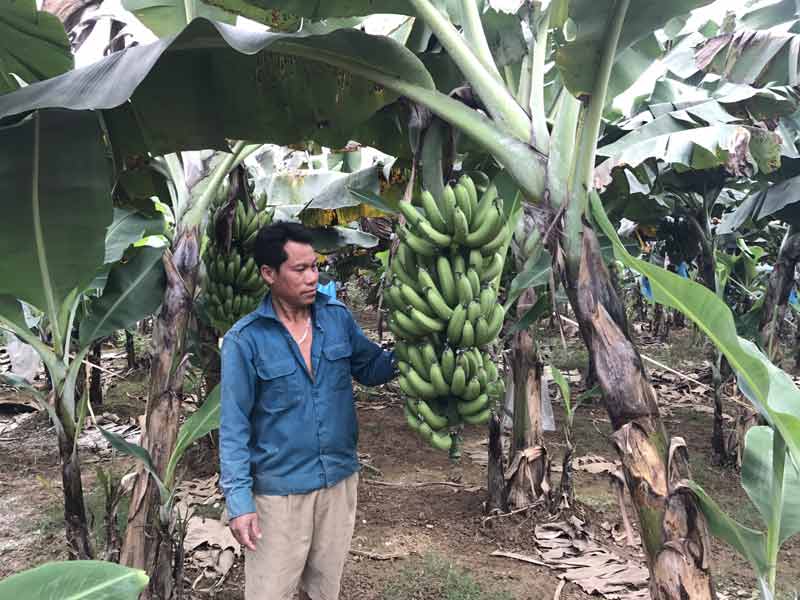



The garden of pink aromatic bananas of Mr. Bui Van Thuy, Bai village, Kim Binh commune (Kim Boi) has brought the income of hundreds of millions of dongs every year.
We visited Mr. Thuy's banana garden just in time it was being harvested to sell. The banana crop this year was bumper. The bunches included beautiful and big bananas with eye-catching colors. The traders have bought 2,000 bunches of bananas with a price of 100,000 VND a bunch. After deducting the cost of fertilizer, seed, and care, he planned to get over 100 million VND.
Mr. Thuy says that the application of science and technology into production has helped to significantly improve the quality, the crop productivity, reduce the costs and bring higher profits. In the near future, he plans to continue expanding the banana gardens, building the models according to VietGAP standards, preliminary processing and packing right in the garden to bring higher economic efficiency. According to his estimation, if he plants bananas under VietGAP process, the profit will not less than 150 million VND a hectare.
The demand of the market for this product is large, especially the clean banana products without using chemicals and pesticides. According to Mr. Thuy, the soil quality in the locality and some surrounding areas are suitable for the pink aromatic bananas with high quality and typical flavour. At the same time, the abundant water resource is an important factor to help the model develop sustainably. To replicate the model, put the banana trees into one of the key economic development directions, besides the existing natural conditions, it is necessary to bring science and technology into production and to develop towards the clean agriculture. It is necessary to produce under the chain of value from production to consumption to bring the highest profit, gradually building a brand of clean products with the reputation in the market.